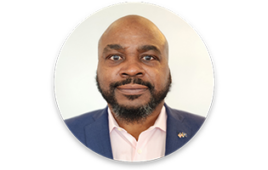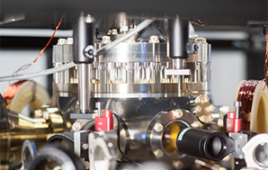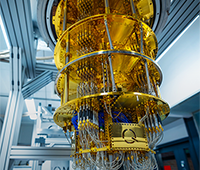Lawrence Livermore’s Sequoia Supercomputer Towers above the Rest in Latest TOP500 List
 |
For the first time since November 2009, a United States supercomputer sits atop the TOP500 list of the world’s top supercomputers. Named Sequoia, the IBM BlueGene/Q system installed at the Department of Energy’s Lawrence Livermore National Laboratory achieved an impressive 16.32 petaflop/s on the Linpack benchmark using 1,572,864 cores.
Sequoia is also one of the most energy efficient systems on the list, which was released Monday, June 18, at the 2012 International Supercomputing Conference in Hamburg, Germany. This will mark the 39th edition of the list, which is compiled twice each year.
Complete information on the trends indicated by the latest list, as well as the complete list, can be found on the TOP500 website.
On the latest list, Fujitsu’s “K Computer” installed at the RIKEN Advanced Institute for Computational Science (AICS) in Kobe, Japan, is now the No. 2 system with 10.51 Pflop/s on the Linpack benchmark using 705,024 SPARC64 processing cores. The K Computer held the No. 1 spot on the previous two lists.
The new Mira supercomputer, an IBM BlueGene/Q system at Argonne National Laboratory in Illinois, debuted at No. 3, with 8.15 petaflop/s on the Linpack benchmark using 786,432 cores. The other U.S. system in the Top 10 is the upgraded Jaguar at Oak Ridge National Laboratory in Tennessee, which was the top U.S. system on the previous list and now clocks in at No. 6.
The newest list also marks a return of European systems in force. The most powerful system in Europe and No.4 on the List is SuperMUC, an IBM iDataplex system installed at Leibniz Rechenzentrum in Germany. Another German machine, the JuQUEEN BlueGene/Q at Forschungszentrum Juelich, is No. 8.
Italy makes its debut in the Top 10 with an IBM BlueGene/Q system installed at CINECA. The system is at No. 7 on the list with 1.72 Pflop/s performance. In all, four of the top 10 supercomputers are IBM BlueGene/Q systems. France occupies the No. 9 spot with a homegrown Bull supercomputer.
China, which briefly took the No. 1 and No.3 spots in November 2010, has two systems in the Top 10, with Tianhe-1Aat the National Supercomputing Center in Tianjin in No. 5 and Nebulae at the National Supercomputing Centre in Shenzhen No. 10.
Total performance of all the systems on the list has increased considerably since November 2011, reaching 123.4 Pflop/s. The combined performance of the last list was 74.2 Pflop/s. In all, 20 of the supercomputers on the newest list reached performance levels of 1 Pflop/s or more. The No. 500 machine on the list notched a performance level of 60.8 teraflop/s, which was enough to reach No. 332 just seven months ago.
A look at processors
A total of 372 systems (74.4 percent) are now using Intel processors, down from 384 systems (76.8 percent) on the last list. Intel is now followed by the AMD Opteron family with 63 systems (12.6 percent), same as in the in the previous list. The share of IBM Power processors has increased from 49 to 58 systems (11.6 percent).
58 systems use accelerators or co-processors (up from 39 six months ago), 53 of these use NVIDIA chips, two use Cell processors, two use ATI Radeon and there is one new system with Intel MIC technology.
The top vendors
IBM kept its lead in systems and has now 213 systems (42.6 percent) compared to HP with 138 systems (27.6 percent). HP is slightly down from 141 systems (28.2 percent) seven months ago, compared to IBM with 223 systems (44.6 percent). In the system category, Cray, Appro, SGI and Bull follow with 5.4 percent, 3.6 percent, 3.2 percent, and 3.2 percent respectively.
IBM remains the clear leader in the TOP500 list in performance and considerably increased its share with 47.5 percent of installed total performance (up from 27.3 percent). HP is second with 10.2 percent down from 13.1 percent. Due to the impressive performance of the No. 1 K Computer, Fujitsu follows closely in the third spot with 9.9 percent, down from 14.7 percent. Cray follows in fourth place in this category with 8.9 percent, down from 14.3 percent.
Where are they now?
The U.S. is clearly the leading consumer of HPC systems with 253 of the 500 systems (down from 263). The European share (107 systems – up from 103) is still lower than the Asian share (121 systems – up from 118). Dominant countries in Asia are China with 68 systems (down from 74), Japan with 34 systems (up from 30). In Europe, UK, France, and Germany, are almost equal with 25, 22, and 20 respectively.
About the TOP500 List
The TOP500 list is compiled by Hans Meuer of the University of Mannheim, Germany; Erich Strohmaier and Horst Simon of Lawrence Berkeley National Laboratory; and Jack Dongarra of the University of Tennessee, Knoxville.



